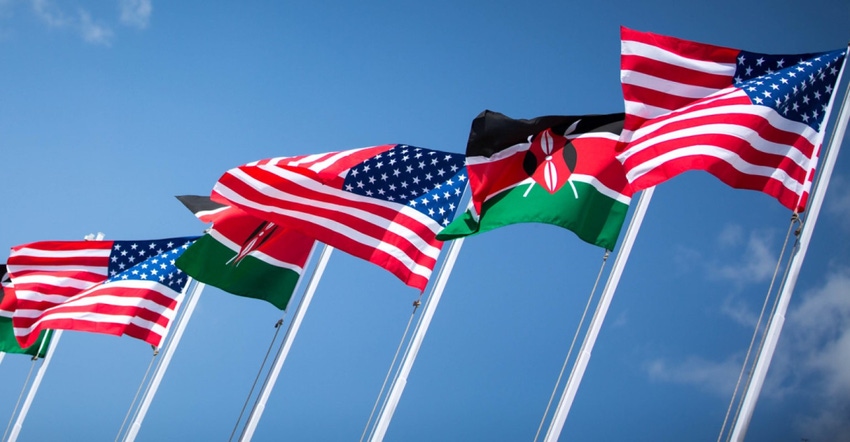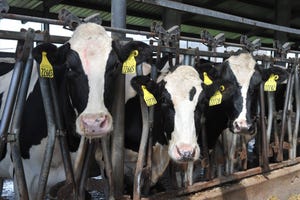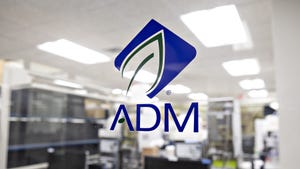Kenya trade negotiations kick off
USDEC CEO Vilsack said Kenya could offer entry point into sub-Saharan Africa’s potential expanding middle class.

The Office of the U.S. Trade Representative (USTR) formally began negotiations with Kenya on a free trade agreement on July 8. In light of the ongoing global COVID-19 pandemic, the first round of negotiations was conducted virtually, with U.S. and Kenyan negotiators engaging in discussions over the next two weeks in multiple negotiating sessions covering all aspects of a comprehensive trade agreement.
The U.S. and Kenya share a deep and enduring relationship that encompasses longstanding social, cultural, economic and political ties, the countries said in a joint statement. Both countries have worked closely together to strengthen agriculture, protect wildlife, improve health and welfare, assist in civic education and combat the scourge of terrorism.
In 2018, President Donald Trump and President Uhuru Kenyatta elevated the U.S.-Kenya bilateral relationship to a strategic partnership and established a Trade & Investment Working Group to explore ways to deepen the trade and investment ties between the two countries and lay the groundwork for a stronger future trade relationship. In 2020, the two presidents agreed to pursue closer economic ties through the negotiation of a free trade agreement.
“Kenya is a recognized leader across the continent, an important strategic partner of the United States, and there is enormous potential for us to deepen our economic and commercial ties,” USTR Ambassador Robert Lighthizer said. “Under President Trump’s leadership, we look forward to negotiating and concluding a comprehensive, high-standard agreement with Kenya that can serve as a model for additional agreements across Africa.”
Following closely on the heels of the July 1 implementation of the U.S.-Mexico-Canada Agreement (USMCA), this latest move signals that there is both enthusiasm and political will to continue expanding market access for U.S. products. U.S. negotiations with Kenya are scheduled to take place concurrently with U.S. trade talks with the U.K.
Tom Vilsack, president and chief executive officer of the U.S. Dairy Export Council (USDEC), said in a recent "Feedstuffs in Focus" podcast that although Kenya is not a big market for U.S. dairy products today, it is an entry point to sub-Saharan Africa, a part of the continent that will see remarkable population growth over the next 10-15 years. The hope is that the emerging economies become more sustainable and their governments more stable.
“Middle classes get created in those circumstances, and those middle classes demand more protein, and dairy protein is a good nutritious source to meet their needs,” Vilsack said.
In response to the U.K. negotiations, Vilsack said the U.K. is a prominent importer of dairy products and rivals everybody but Japan in terms of market demand. He said the discussions are occurring at the same time as Brexit while the U.K. and the European Union re-establish their relationship. He said there will be opportunities to pick up market share that has so far been difficult to access but will depend on negotiations that take place and whether a trade agreement will provide more market access or keep dairy imports from the U.S. constrained.
Mark Holt, an Arkansas miller and chair of the Europe, Africa, Middle East Trade Policy subcommittee for USA Rice, said, "USA Rice has been in close communication with USTR to vocalize our priorities for both U.K. and Kenya trade negotiations. We will follow progression of the talks and continue to build our relationships with importers in both of those markets ahead of future deals."
USTR began negotiations with the U.K. in May and completed a second two-week discussion period in late June. Negotiations are scheduled with both the U.K. and Kenya throughout the summer; however, completion dates are still unknown and depend upon whether any headway is made as talks progress.
About the Author(s)
You May Also Like





